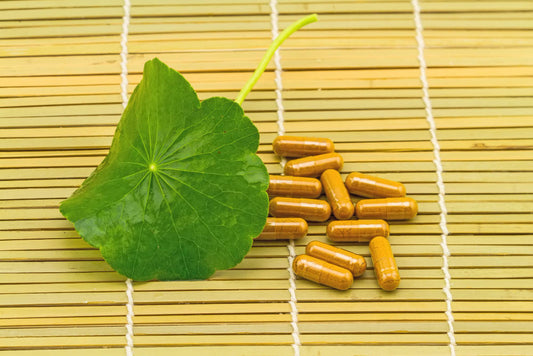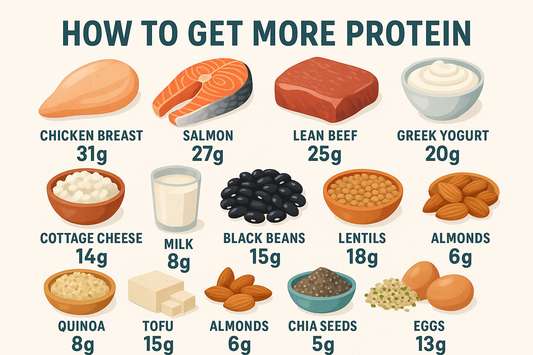There's a growing trend in incorporating sea kelp into diets due to its rich nutrient profile and potential health benefits. However, while kelp can be a nutritious addition to your meals, it's imperative to be aware of its possible side effects, especially if you are considering supplements. Kelp is known for its high iodine content, which can impact thyroid function, and it may also contain harmful levels of arsenic. Understanding these risks can help you make informed choices about integrating kelp into your diet safely.
Kelp Side Effects and Its Nutritional Profile

Your journey into the world of kelp introduces you to a powerhouse of vitamins and minerals necessary for health. Kelp is particularly renowned for its high iodine content, which is vital for thyroid function. Addressing iodine deficiency is crucial as it can lead to health issues such as goiter and impaired cognitive abilities. A serving of kelp can provide more iodine than most people need daily, making it an excellent natural source, especially for those on reduced-sodium diets. In addition to iodine, kelp is rich in calcium, offering 168 milligrams per serving, surpassing many traditional vegetables such as collard greens and kale. It also contains significant amounts of magnesium (121 milligrams, or 29 percent of your daily value) which supports muscle and nerve function, and is loaded with vitamins such as vitamin K—providing 82 percent of your daily value—which plays a critical role in blood clotting and bone metabolism. Furthermore, kelp contains vitamins C and various B vitamins, contributing to energy metabolism and overall well-being.
What is Kelp?
Kelp is a type of large brown algae that thrives in the ocean, particularly in shallow, nutrient-rich waters around the globe. This edible seaweed has been a staple in various cultures for centuries, valued not only as a food source but also for its medicinal properties. Kelp is celebrated for its potent antioxidant properties and its impressive vitamin and mineral density. In fact, it contains up to ten times the amount of minerals found in plants grown in soil, making it a powerhouse of nutrition. Whether consumed as a food or in kelp supplements, this sea vegetable offers a myriad of health benefits, from supporting thyroid function to enhancing overall well-being.
Vitamins and Minerals
On top of its impressive vitamin and mineral profile, kelp also plays a meaningful role in maintaining your health. Alongside calcium and magnesium, the presence of folate in kelp makes it particularly beneficial for pregnant individuals, helping to prevent birth defects by supplying 180 micrograms or 45 percent of your daily needs. The combination of these nutrients supports various bodily functions, including maintaining strong bones, effective blood cell production, and ensuring your own thyroid gland operates optimally. Addressing iodine deficiency is crucial, especially for pregnant individuals, as it can lead to conditions such as goiter and impaired cognitive abilities in infants. Thus, incorporating kelp into your meals can provide a natural boost in these necessary nutrients for your diet.
Antioxidant Properties
Kelp contains a variety of antioxidant compounds that may help combat oxidative stress in your body. These antioxidants are linked to reducing the risk of chronic diseases, including cancer and heart disease. Research indicates that the compounds found in seaweeds like kelp can slow the progression of certain cancers, particularly colorectal and breast cancers. This highlights the significant health potential of including kelp in your diet. (Consult with a healthcare provider about incorporating kelp for specific health benefits.)
Kelp’s rich assortment of antioxidants not only combats molecular damage but also plays a role in inflammation reduction. This can lead to an overall enhancement in cardiovascular health and a decreased risk of developing severe chronic conditions. By including kelp as part of your dietary routine, you may support your body’s innate defenses against oxidative damage, making it a wise choice for long-term health. (Consider discussing with a practitioner how kelp’s antioxidant properties might benefit your health plan.)
Profile your meals with the added nutrition and health benefits that kelp offers, from minerals and vitamins to the protective power of antioxidants. By embracing kelp, you may find a valuable addition to your dietary habits that supports your overall well-being bone health and longevity.
Health Benefits of Kelp
Assuming you incorporate kelp into your diet, you'll discover its potential benefits for weight management. Kelp contains alginate, a natural fiber that may help block fat absorption in your intestines by up to 75%. This property, in combination with its nutrient density, can promote feelings of fullness, reducing your overall calorie intake. This can be especially beneficial if you're looking to maintain a healthy weight as kelp may become part of your dietary approach (always consult with a healthcare provider before making significant changes to your diet).
Weight Management
Among the various nutrients found in kelp, specific compounds may play a role in your own weight loss and management efforts by enhancing satiety and limiting fat absorption. By including kelp in your meals, you can create a more balanced eating plan that supports your health goals while enjoying the diverse flavors of this sea vegetable.
Thyroid Function
Among the important health benefits of kelp is its rich iodine content, which is vital for promoting healthy thyroid function. Iodine is necessary for the production of thyroid hormones, which regulate numerous physiological processes, including metabolism and energy levels. Iodine deficiency can lead to conditions such as hypothyroidism, characterized by fatigue, weight gain, and an inability to tolerate cold. By incorporating kelp into your diet, you can support your thyroid health and prevent potential hormonal imbalances.
Consuming kelp regularly can ensure that you receive adequate iodine levels, especially if you adhere to a diet low in iodine-rich foods. The recommended daily allowance for iodine is 150 micrograms for adults, and kelp can help you meet this requirement. It’s a natural food source that bridges gaps in your meal plan, safeguarding against thyroid-related issues while contributing to your overall wellness.
Potential Side Effects of Kelp

Clearly, while kelp offers numerous health benefits, it is important to be aware of the potential side effects associated with its consumption, particularly when taken in supplement form. The risk of iodine overconsumption is a significant concern, especially for individuals with thyroid disorders. Ingesting too much kelp can lead to excessive iodine intake, which can exacerbate symptoms of thyroid disease and hypothyroidism, including fatigue and weight gain. Kelp supplements often contain iodine levels that far exceed the recommended daily intake of 150 micrograms for adults. If you have a thyroid condition, it is wise to consult with a healthcare professional before adding kelp to your regimen.
Too Much Iodine
The body requires iodine for proper thyroid hormone production, but using too much iodine can lead to thyroid inflammation and an increased risk of thyroid cancer. Symptoms of excessive iodine intake include nausea, fever, and a burning sensation in the throat and stomach, which can be distressing. Your health can greatly benefit from informed choices about iodine sources and potency in supplements. (Consulting a healthcare provider is recommended if you are considering supplementation.)
Arsenic Concerns
Around the potential side effects of kelp, one cannot overlook the issue of arsenic contamination in some sea kelp supplements. Arsenic is recognized for its toxic and carcinogenic properties, making excessive exposure a serious health risk. Kelp harvested from polluted waters may contain harmful levels of arsenic, leading to risks such as gastrointestinal distress, chronic weakness, and even long-term carcinogenic effects. Making informed choices about the source and purity of your sea kelp supplement is vital for your health. (You should carefully evaluate your supplement options and consider opting for third-party tested products.)
Due to the nature of kelp's absorption of nutrients from its surrounding environment, the levels of arsenic can vary significantly between different products and brands. Regular consumption of supplements with high arsenic levels can lead to detrimental health outcomes over time. Therefore, being selective about the sources of the kelp supplement you choose can help mitigate these risks. (Always choose kelp supplements from reputable brands that disclose their testing results.)
Interactions with Medications
Now, if you are considering adding kelp to your diet, it is vital to be aware of potential interactions with certain medications. Kelp supplements, particularly those high in iodine, can negatively affect your health, especially if you are taking thyroid medications like levothyroxine (Levoxyl, Synthroid), liothyronine (Cytomel), or thyroid (Armour Thyroid). Excess iodine from kelp can overstimulate your thyroid, leading to inflammation and increasing your risk of thyroid cancer. Therefore, consult with your healthcare provider before introducing kelp into your routine, particularly if you are managing a thyroid disorder.
Additionally, if you take potassium supplements or potassium-sparing diuretics such as triamterene, amiloride, or spironolactone (Aldactone), you should exercise caution. The high sodium content in kelp can interfere with your body’s potassium balance, which may lead to harmful side effects. To ensure your safety and maintain optimal health, discussing these potential interactions with your doctor will help you make informed decisions about incorporating kelp into your diet.
Safe Consumption Guidelines

Despite the numerous health benefits attributed to kelp, it is vital to approach its consumption with care, particularly due to its high iodine content. It is also important to source high-quality kelp to avoid contaminants and the risks associated with consuming too much kelp. To enjoy the nutritional advantages of kelp while minimizing the risk of iodine-related side effects, it’s advisable to limit your intake. A typical recommended serving size of dried kelp is about 1 to 2 tablespoons, which generally provides sufficient nutrients without exceeding safe iodine levels. (Consulting with a healthcare professional is wise if you have concerns regarding iodine intake or existing health conditions.)
Recommended Serving Size
For adults, a serving size of 1 to 2 grams of dried kelp is considered appropriate when consumed as part of a balanced diet. This amount allows you to benefit from its rich mineral content and antioxidants, contributing positively to your health, while keeping your iodine levels within the daily recommended limits. Pregnant or breastfeeding individuals should consult a healthcare provider before increasing their kelp intake to ensure it aligns with their specific health needs.
Whole Food vs. Sea Kelp Supplements

Before considering kelp supplements, it is wise to explore consuming whole kelp as a natural food option. Eating kelp in its whole form allows you not only to take advantage of its nutrients but also to enjoy the diverse flavors and culinary applications it offers. Whole kelp contains a balance of vitamins, minerals, and dietary fibers, which may not be as effective in supplement format. Additionally, the quality of kelp supplements can vary greatly, with some products containing unregulated amounts of iodine and other elements, including arsenic. Therefore, relying on whole food sources can provide you with a safer method of incorporating kelp into your diet while reducing potential toxicity.
Whole kelp can be easily integrated into your meals through soups, salads, or as a seasoning. By opting for whole kelp noodles as food rather than supplements, you gain assurance regarding the purity and composition of your nutrition. Supplements may not only offer inconsistent quality but could also lead to excessive iodine intake that could interfere with thyroid function or lead to other health issues. Thus, whenever possible, prioritize consuming whole kelp for both its health benefits and to mitigate risks associated with supplement use.
Cooking with Sea Kelp

Incorporating sea kelp into your diet can be a delicious and nutritious way to enjoy its numerous health benefits. Here are some creative and practical tips for cooking with sea kelp:
-
Raw Kelp: Add raw kelp to stir-fry dishes, soups, salads, smoothies, and other drinks for a nutrient boost.
-
Dried Kelp: Enhance the flavor of dried beans and reduce gas by adding dried kelp during cooking.
-
Kelp Noodles: Enjoy kelp noodles hot or cold as a low-calorie, nutrient-dense alternative to traditional pasta.
-
Seasoning: Use kelp as a seasoning or add it to soups and stews for extra nutrition and a unique umami flavor.
-
Kelp Chips: Fry kelp into crispy chips for a healthy and satisfying snack.
-
Versatile Ingredient: Experiment with kelp in various dishes, such as kelp burgers, kelp salads, and kelp soups.
When cooking with sea kelp, it’s important to remember that it can be high in iodine, which is beneficial for thyroid function but can be problematic for those with thyroid issues. Therefore, it’s crucial to consume kelp in moderation and be mindful of your overall iodine intake from other sources.
Additionally, kelp can sometimes be contaminated with heavy metals, so it’s essential to choose high-quality, sustainably sourced kelp products. Look for domestic brands that practice regenerative farming, such as Atlantic Sea Farms and Barnacle, to ensure you’re getting the best and safest product.
Overall, cooking with sea kelp not only adds nutrition and flavor to your meals but also supports sustainable and regenerative farming practices, making it a win-win for your health and the environment.
Special Considerations
For pregnant individuals or those who are breastfeeding, incorporating kelp into your diet can be beneficial due to its high iodine content, which is necessary for thyroid hormone production. However, it's important to be cautious about the amounts vitamins kelp you consume from supplements, as they can contain several thousand times the recommended daily limit of iodine. High iodine intake during pregnancy can lead to adverse effects, so consult with your healthcare provider before adding kelp supplements to your routine. Additionally, a standard serving of kelp provides 150 micrograms of iodine, aligning with the daily requirement for most adults, but pregnant or breastfeeding individuals may need more to support their baby's development.
If you have a pre-existing health condition, particularly thyroid disorders such as hypothyroidism, you should approach kelp with care. The excessive iodine in kelp supplements can exacerbate symptoms or worsen your condition if your thyroid dysfunction is not primarily iodine-deficient. It's also advisable to consult your healthcare provider if you're on medication, especially those for thyroid function, potassium supplements, or any potassium-sparing diuretics, as these may interact negatively with kelp. Ensuring that you have a personalized dietary plan can help you enjoy the benefits of kelp while minimizing risks associated with your health status.
Summing Up
Hence, while incorporating kelp into your diet can offer numerous health benefits such as crucial vitamins, minerals, and antioxidants, it is important to be aware of the potential side effects associated with taking kelp supplements alone. You should be particularly cautious if you have pre-existing conditions like hypothyroidism, as excessive iodine intake can aggravate your symptoms. Moreover, if you choose to take supplements, understanding the iodine content and seeking medical advice beforehand is crucial to ensure you do not exceed safe intake levels.
Additionally, the presence of arsenic in certain kelp products can pose serious health risks. Adverse effects may include gastrointestinal issues and potential long-term toxicity. By opting for whole food sources of kelp instead of supplements, you can enjoy the natural nutritional advantages while minimizing the risk of harmful side effects. As with any dietary change, being informed and consulting with a healthcare professional will help you maintain a balanced and safe approach to your health.







